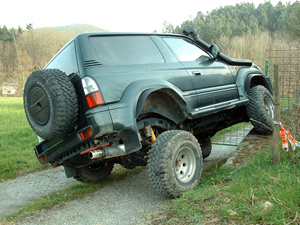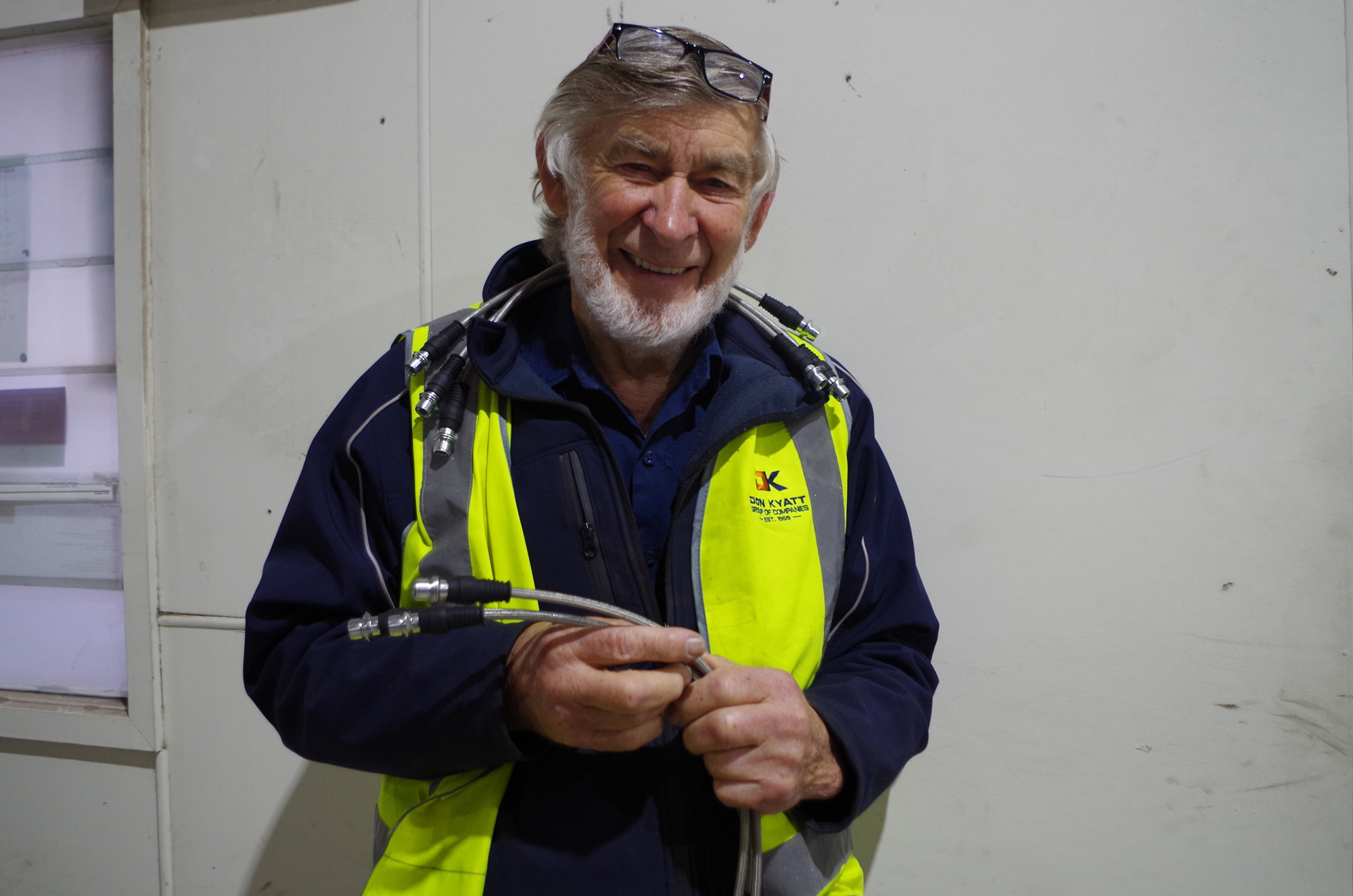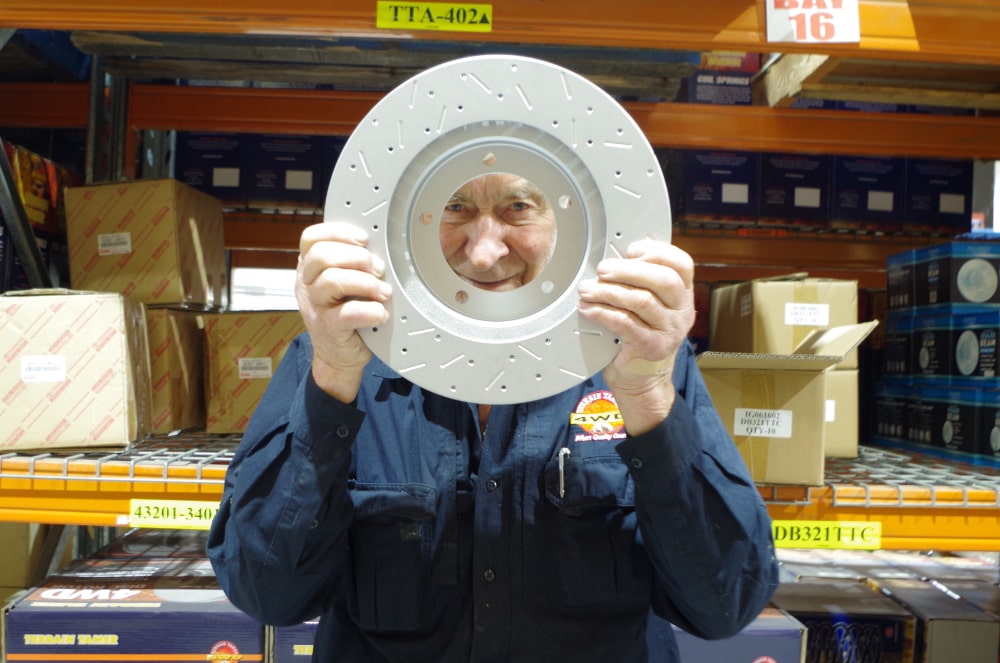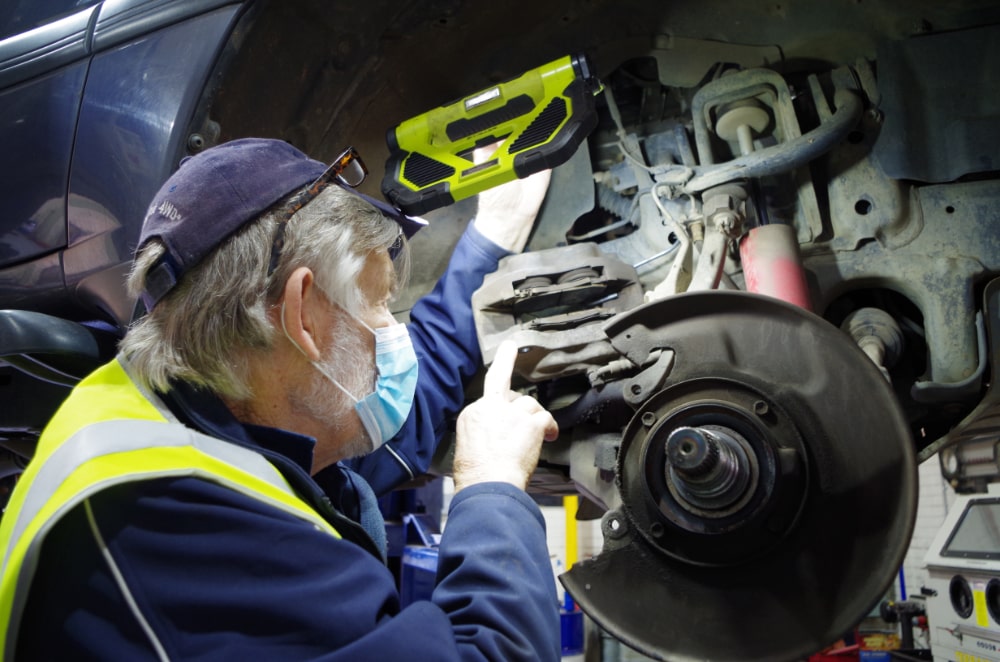 Stephen Miller, Glenmore Park, NSW
Stephen Miller, Glenmore Park, NSW
Hi Allan, I need your help before I go insane and send my wife around the twist. I am coming up for long service leave next year, and my wife and I are organising for two months off travelling with our two-year old.
I have a metal-to-metal type squeak on my Toyota 90 Series Prado. It’s a ’01 model diesel with 101, 000 km on the clock. Well I have ripped off wheels, taken off brake callipers, pulled the exhaust flange apart and greased it up, laid on my back every night for a minimum an hour for the last 2 weeks checking, pushing, pulling and probing everything in sight.
I’ve taken off bash plates, greased the tailshaft, checked shocks, springs, driveshafts, checked the bulbar, snorkel and every other possible thing trying to find this metal to metal squeak, but I can’t for the life of me find the problem. It’s driving me insane, not to mention my wife who has to put up with me.
What could it possibly be? All I had done was have the snorkel fitted and 50mm lift fitted. I have been over it top to bottom. I’ve even tried rolling down hills with the engine off and it still does it. I thought at first it was only with the engine running, but it does it when it’s turned off and in neutral as well.
The only thing I did notice today was that with the engine running and gentle throttle it’s worse. I was hanging off side steps rolling along with my mate hanging out the passenger’s door trying to listen to where it was coming from. The noise comes and goes and can hang around for minutes or hours of driving. Please help!
My mate who has also checked it over with me has worked for Toyota for 20-odd years as a tech, and even this one has him stumped. Please Allan, I need your expertise before I go nuts!
Allan
Going back a few years now, during one of the ‘round Australia vehicle trials, Renault came over from France and decided to pull one of their vehicles out of the test with a similar noise to your own. When they got back to the factory, they found it was just a dust protection plate that had cracked, which nobody could pick up at the time. It was just touching on the edges causing terrible noise that made them think the whole thing was falling apart!
Now, I know you’ve checked your bash plates. I’d check every little tin plate to see if it’s cracked anywhere. I’d check for cracked wheels too. What you can do is, you can actually get a lot of noise to transmit through a length of garden hose. I often tie a length of garden hose to the front or rear diff and run it into the cab so you can have a listen to those areas that way. Move the hose around to different areas of your 4WD to try and trace the noise down like that.
You can also opt to have the vehicle run up on a set of dyno rollers to recreate the noise and try to pin-point it this way. There are also some workshops around that have shakers, where you can put your 4WD on this machine that shakes it vigorously.
In either case, you can listen for the noise with an oscilloscope, but in my opinion they might be too sensitive and pick up too much noise in this situation. So I’d run with using the trusty garden hose taped to a broom stick to track down the location of the noise.
It’s all about locating a rough area of the noise and then working from there. Good luck with it. I’d be interested to know what it is. I’ve been chasing things like this for a long while and it’s amazing generally you find it’s just something very small, particularly when it’s not getting worse. But it’s always important to have a look around and find out what it is before you go. Let us know what happens, but they’re some of the things I’d be looking at.





